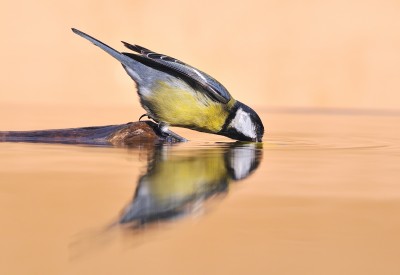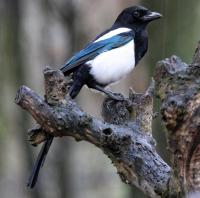- Home
- FAQs
- Customer Video Gallery
- Customer Photo Gallery
- Bird Facts
- Bird Food Blog
- Bird Information
- Feeding Advice
- Small Animal Information
- A to Z of Guinea Pigs
- A to Z of Hamsters
- A to Z of Rabbits
- Basic Care for Guinea Pigs
- Basic Care for Hamsters
- Basic Care for Rabbits
- Basic care for Chinchillas
- Basic care for Ferrets
- Basic care for Gerbils
- Basic care for Mice
- Basic care for Rats
- Buying a Healthy Small Animal
- Does your Reptile need a Licence
- Equipment for Ferrets
- Equipment for Hamsters
- Equipment for Mice
- Equipment for your Chinchilla
- Equipment for your Gerbil
- Equipment for your Guinea Pig
- Equipment for your Rabbit
- Keeping a House Rabbit
- Dog Information
- Cat Information
- Customer Information
- Fat Balls
- Suet Pellets
- Straights
- Seed Mixes
- Suet Treats
- Mealworms
- Bird Feeders
- My Account
Birds and Water
Wild birds need water for two main reasons, for drinking and for bathing.
The importance of fresh, clean water for drinking will come as no surprise to most of us and for birds it is just as vital, more so given their size and the speed with which they can dehydrate, particularly in summer, when natural sources may be scarce, and winter, when freezing is an issue.
Having a reliable source of drinking water will encourage birds and possibly other wildlife to frequently visit your garden, and if you can’t provide natural sources of water (see Gardening For Wildlife) consider alternative methods such as purpose built bird baths or simply an old bowl or tray. It is important however that the water is not too deep, say no greater than 5cm, otherwise birds will not be able to stand or bathe in it without getting into difficulty, not all birds are as happy in deeper water as ducks!
As the name implies bird baths are not merely a source of drinking water, they are also a place where birds can bathe. Bathing is extremely important to wild birds, it is the method, coupled with preening, by which they help keep their feathers in tiptop condition. Most birds will bathe but you are most likely to see Blackbirds, Sparrows and Starlings in particular. Typically a bird will fluff up its feathers, dip its head in the water and flap its wings to create a kind of shower over itself. Once the bird has finished bathing they will shake off any excess water and fly off somewhere to dry and preen. Some birds, particularly House Sparrows, will take dust baths in much the same way to clean the skin of parasites and absorb excess preen oil; you may see signs of these in your garden as small cup shaped indentations in the soil amongst the plants.
Birds have special glands, preen glands, which produce preen oil that birds use after bathing to re-condition their feathers for efficient flight and to weatherproof them. They take the preen oil from the gland and spread it throughout the feathers using their beaks, most of us have seen ducks, in particular, regularly carrying out this ritual.
Some reports have described birds sunbathing, flattening themselves with wings outstretched, possibly to help the preen oil spread more evenly over the feathers or maybe the birds just find the experience enjoyable. Blackbirds have also been seen laying on ants nests and even picking ants up and rubbing them over their feathers, some experts have suggested that the formic acid from the ants acts as a kind of pesticide against feather mites and other parasites.
Bird baths and bowls can become dirty from both the birds using them and from the build-up of algae over time. Regular cleaning to help prevent disease and illness in birds is essential, a good stiff brush and regular replacing of water should suffice to keep bird baths clean. The use of detergents is not recommended but if it is necessary, due to a particularly high build-up of dirt or algae, then preferably use a wildlife friendly variety but in any case rinse off all traces of detergents with clean water before re-filling.
If you find chipping through ice too frequent a task in the cold of winter there are products available to prevent bird baths freezing, at least down to -4°C, which are safe for wildlife, consisting primarily of vegetable oil. You should never use anti-freeze in bird baths as this will cause the deaths of any and all birds that drink from it. Others have suggested that floating a table tennis ball or similar in the water helps prevent freezing as it moves about driven by wind.
The importance of fresh, clean water for drinking will come as no surprise to most of us and for birds it is just as vital, more so given their size and the speed with which they can dehydrate, particularly in summer, when natural sources may be scarce, and winter, when freezing is an issue.

Having a reliable source of drinking water will encourage birds and possibly other wildlife to frequently visit your garden, and if you can’t provide natural sources of water (see Gardening For Wildlife) consider alternative methods such as purpose built bird baths or simply an old bowl or tray. It is important however that the water is not too deep, say no greater than 5cm, otherwise birds will not be able to stand or bathe in it without getting into difficulty, not all birds are as happy in deeper water as ducks!
As the name implies bird baths are not merely a source of drinking water, they are also a place where birds can bathe. Bathing is extremely important to wild birds, it is the method, coupled with preening, by which they help keep their feathers in tiptop condition. Most birds will bathe but you are most likely to see Blackbirds, Sparrows and Starlings in particular. Typically a bird will fluff up its feathers, dip its head in the water and flap its wings to create a kind of shower over itself. Once the bird has finished bathing they will shake off any excess water and fly off somewhere to dry and preen. Some birds, particularly House Sparrows, will take dust baths in much the same way to clean the skin of parasites and absorb excess preen oil; you may see signs of these in your garden as small cup shaped indentations in the soil amongst the plants.
Birds have special glands, preen glands, which produce preen oil that birds use after bathing to re-condition their feathers for efficient flight and to weatherproof them. They take the preen oil from the gland and spread it throughout the feathers using their beaks, most of us have seen ducks, in particular, regularly carrying out this ritual.
Some reports have described birds sunbathing, flattening themselves with wings outstretched, possibly to help the preen oil spread more evenly over the feathers or maybe the birds just find the experience enjoyable. Blackbirds have also been seen laying on ants nests and even picking ants up and rubbing them over their feathers, some experts have suggested that the formic acid from the ants acts as a kind of pesticide against feather mites and other parasites.
Bird baths and bowls can become dirty from both the birds using them and from the build-up of algae over time. Regular cleaning to help prevent disease and illness in birds is essential, a good stiff brush and regular replacing of water should suffice to keep bird baths clean. The use of detergents is not recommended but if it is necessary, due to a particularly high build-up of dirt or algae, then preferably use a wildlife friendly variety but in any case rinse off all traces of detergents with clean water before re-filling.
If you find chipping through ice too frequent a task in the cold of winter there are products available to prevent bird baths freezing, at least down to -4°C, which are safe for wildlife, consisting primarily of vegetable oil. You should never use anti-freeze in bird baths as this will cause the deaths of any and all birds that drink from it. Others have suggested that floating a table tennis ball or similar in the water helps prevent freezing as it moves about driven by wind.




